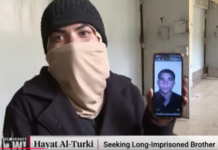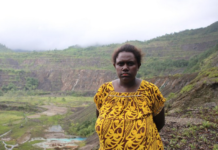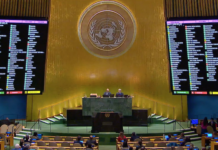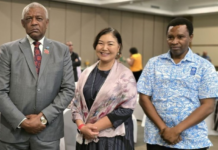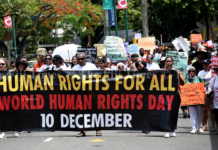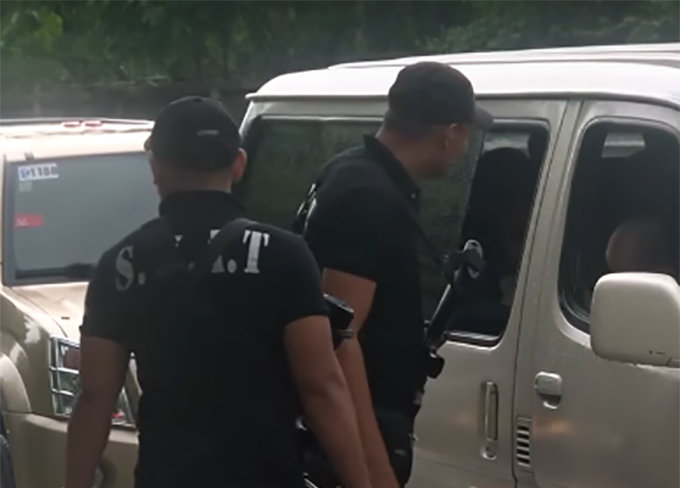
Pacific Media Centre News Desk
The Philippines must ensure that human rights are respected and protected, following the President Rodrigo Duterte’s declaration of martial law yesterday in the southern island of Mindanao, says Amnesty International.
The authorities must also ensure a clear timetable for an end to martial law, which is now for 60 days, but may be extended by Congress.
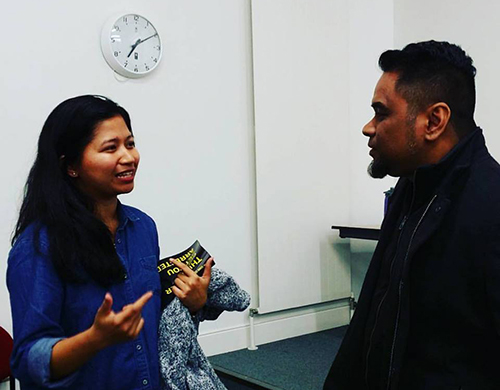
Rappler reports that Congress is “unlikely” to revoke martial law.
READ MORE: Duterte says martial law due to ISIS threat
Congress, filled with President Duterte’s allies, has no intention of revoking the Chief Executive’s declaration of martial law, says Senate Majority Leader Vicente Sotto III, who added that Congress need not convene as they have no plans of withdrawing the proclamation.
“We have no intentions of revoking, therefore we need not meet jointly. Wala akong alam (I am not aware) of any intentions to revoke,” Sotto said yesterday in a text message.
Sotto said it was also the same view during the senators’ caucus yesterday.
President Duterte declared martial law in the Philippines island of Mindanao on Tuesday after fighting escalated in Marawi City between government forces and the rebel Maute group, which has pledged allegiance to the so-called Islamic State (IS).
Formed alliance
The group has reportedly formed an alliance with Abu Sayaff leader Isnilon Hapilon, who is also said to be the IS leader of in the Philippines.
Amnesty International said in a statement today that it is gravely concerned that the President had since used his powers to declare a suspension of the writ of habeas corpus.
“The writ of habeas corpus requires a person to be brought before a judge or court especially to secure their release, unless lawful grounds are shown for their detention,” the Amnesty statement said.
“This right is an essential safeguard against arbitrary deprivation of liberty, which under international human rights law is non-derogable, that is, it cannot be denied even in times of emergency.
“President Duterte must therefore repeal this suspension immediately.”
Under international human rights law, including treaties which the Philippines was a party to, the scope of martial law must be limited to the extent strictly required by the exigencies of the situation, said the Amnesty International statement.
This requirement related to the duration, geographical scope and any measures of derogation resorted to because of the emergency.
Call for restraint
Amnesty International also called on security forces to show utmost restraint and fully respect the country’s obligations under international human rights law.
“A state of martial law does not suspend other key human rights, including the right to life, the prohibition of torture and other ill-treatment, and the right to a fair trial,” Amnesty said
“Further, the authorities, including army commanders, must make it clear that military personnel of all ranks will not be exempted from prosecution for human rights violations committed when carrying out their duties.”
In Auckland tonight, Amnesty International Philippines campaigns manager Wilnor Papa said that over the years his organisation had expressed concerns over impunity for violations of international human rights law by Philippine security forces as well as human rights abuses by paramilitaries and militia, in particular in Mindanao.
He addressed a lively discussion about the country’s “war on drugs”, human rights violations and the developments on Mindanao this week.
The discussion themed “On the Frontline” at the University of Auckland was organised by the NZ Centre for Human Rights Law, Policy and Practice at the Auckland Law School, the AUT Law School and Amnesty International Aotearoa New Zealand.
During the decade-long imposition of martial law by former President Ferdinand Marcos in the 1970s, there were tens of thousands of victims of human rights violations, including arbitrary detention, torture, enforced disappearances and extrajudicial killings.



